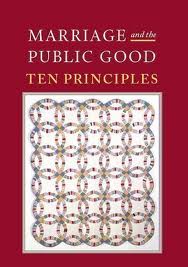The reader will have noticed that I have spoken mainly about male homosexuality, and have only lightly touched upon lesbianism. Indeed, I think lesbianism is the more dangerous of the two, involving a far more radical rejection of the opposite sex, though it would take a long essay to delve into its etiology and the prognosis for a society that accepts it.
I will only say again that any wise statesman must look at us and see that we have gone badly astray; if nothing else, demographics will prove it. Crucial to our regaining our health will be a restored love between man and woman. That will require the rejection of the sexual libertinism we take for granted. And that means that the very last thing we ought to do is to give that libertinism a constitutional imprimatur. We have a long road to travel; we ought not, at the outset, cut off our own feet.
I have until now not spoken from a religious point of view; the truths I have cited can be seen by anyone, regardless of faith. But I wonder whether a wise ruler would sever his culture from the religion that gave birth to it and nurtured it to maturity, and alienate those for whom the religion is still the polestar of human existence. For it is foolish and shortsighted to believe that all the moral and cultural victories won by the religion will remain after that religion has been rejected.
It is one particular victory of Christianity to have preached to the world the dignity of all those whom the world had scorned: women, children, the poor, the weak, and the suffering. The first written tribute of a man to the virtue and intelligence of a woman—not to her physical beauty—was St. Gregory of Nyssa’s account of the life of his sister, the mystic and theologian Macrina. No higher esteem was ever paid the child than when Christ said, “Except ye become as one of these little ones, ye shall not enter the Kingdom of Heaven.”
We take for granted that we will keep a few of the moral precepts of Christ even after we have marked his followers out for derision. No true statesman would assume so. He would know that no culture that denied its roots has survived for long. We won’t, either.
Read the following meditations as a follow-up on this subject:








